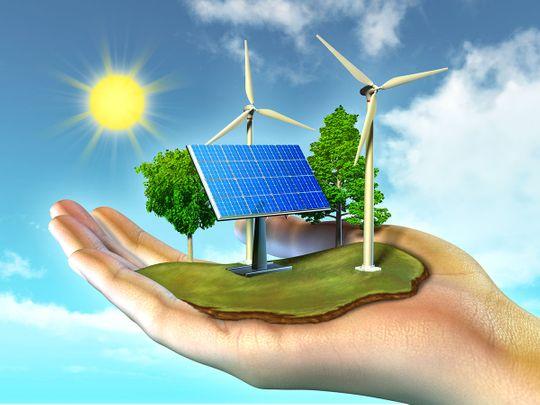Welcome to the era of sustainable energy solutions, where the quest for cleaner, renewable alternatives has become paramount. In this comprehensive guide, we explore the dynamic landscape of sustainable energy, unraveling the myriad benefits and innovative technologies that are steering us towards a greener and more sustainable future.
The Urgency of Sustainable Energy
Addressing Climate Change
The urgency of transitioning to sustainable energy sources cannot be overstated. With the specter of climate change looming, the need to reduce carbon emissions and mitigate environmental impact has never been more critical. Sustainable energy offers a beacon of hope, providing a pathway towards a more harmonious coexistence with our planet.
Dwindling Fossil Fuels
As traditional fossil fuel reserves deplete, the economic and geopolitical landscape is shifting. Embracing sustainable energy not only mitigates the environmental impact but also ensures energy security and independence.
Diverse Forms of Sustainable Energy
Solar Power
Solar power stands as a frontrunner in the realm of sustainable energy. Harnessing the boundless energy from the sun through photovoltaic cells not only reduces dependence on traditional power sources but also opens avenues for decentralized energy production.
Wind Energy
The gentle yet powerful force of the wind is harnessed through wind energy technologies. Wind turbines, strategically placed in windy regions, generate electricity with minimal environmental impact, providing a scalable and sustainable solution.
Hydropower
The kinetic energy of flowing water is converted into electricity through hydropower systems. From large dams to small-scale hydroelectric plants, this age-old technology continues to play a pivotal role in our sustainable energy portfolio.
Geothermal Energy
Geothermal energy taps into the Earth’s internal heat, offering a constant and reliable source of power. Geothermal plants contribute to baseload power generation, reducing the reliance on fluctuating energy sources.
Biomass
Biomass energy utilizes organic materials, from agricultural residues to wood, for power generation. Through controlled combustion or biochemical processes, biomass becomes a sustainable and renewable energy source.
Technological Innovations Shaping Sustainable Energy
Energy Storage Solutions
One of the challenges of sustainable energy is intermittency. However, breakthroughs in energy storage solutions such as advanced batteries and grid-scale storage systems are revolutionizing the industry, ensuring a stable and reliable power supply.
Smart Grids and IoT Integration
Smart grids coupled with the Internet of Things (IoT) are transforming the way we distribute and consume energy. By optimizing energy usage in real-time, these technologies enhance the efficiency of sustainable energy systems.
Advanced Solar Technologies
The evolution of advanced solar technologies, including thin-film solar cells and solar paint, is making solar energy more accessible and efficient. These innovations are reshaping the landscape of solar power applications.
Overcoming Challenges in Sustainable Energy Adoption
Infrastructure Investment
The transition to sustainable energy requires significant infrastructure investments. Governments, industries, and communities must collaborate to build the necessary frameworks for a seamless integration of sustainable energy sources.
Public Awareness and Education
Raising public awareness about the benefits and feasibility of sustainable energy is paramount. Robust educational campaigns can dispel myths, address concerns, and inspire individuals to adopt sustainable practices in their daily lives.
The Future of Sustainable Energy
As we stand at the cusp of a sustainable energy revolution, the future looks promising. Emerging technologies, increased investment, and a growing global commitment to sustainability signal a transformative shift towards a cleaner and more resilient energy landscape.
Residential Renewable Energy Options
Solar Panels for Home
Consider installing solar panels for your home to harness the abundant power of the sun. Solar energy not only reduces your carbon footprint but also provides a clean and sustainable source of electricity. Many regions offer incentives and subsidies for solar installations, making it a financially viable option for homeowners.
Wind Turbines
For those in windy regions, small-scale wind turbines can be a viable option for residential energy generation. These turbines convert wind energy into electricity, contributing to a greener energy mix.
Energy-Efficient Home Upgrades
Smart Home Technology
Embrace smart home technology to optimize energy usage. Smart thermostats, lighting systems, and appliances allow you to control and monitor energy consumption, reducing waste and contributing to a more sustainable lifestyle.
Energy-Efficient Appliances
When it’s time to replace old appliances, opt for energy-efficient models with the Energy Star label. These appliances consume less energy, leading to reduced electricity bills and a lighter environmental impact.
Sustainable Transportation Choices
Electric Vehicles (EVs)
Transitioning to an electric vehicle (EV) is a significant step towards sustainable living. EVs produce zero tailpipe emissions and, when charged with renewable energy, contribute to a cleaner transportation sector.
Public Transportation and Carpooling
Supporting and utilizing public transportation or engaging in carpooling reduces individual carbon emissions. By sharing rides, we collectively contribute to decreased traffic congestion and a more sustainable urban environment.
Community Initiatives for Sustainable Living
Community Solar Projects
Participate in or advocate for community solar projects within your neighborhood. These initiatives allow communities to collectively invest in solar energy, making sustainable power accessible to a broader audience.
Neighborhood Recycling Programs
Engage with or initiate neighborhood recycling programs to encourage responsible waste management. Recycling reduces the need for raw materials and minimizes the environmental impact of waste disposal.
Educating the Next Generation
Sustainability Education
Incorporate sustainability education into school curricula and community programs. Fostering an understanding of sustainable practices at an early age instills lifelong habits and values that contribute to a more eco-conscious society.
Youth-led Environmental Initiatives
Empower and support youth-led environmental initiatives. Young leaders can play a significant role in advocating for sustainable practices, influencing communities, and driving positive change.
Investing in Sustainable Businesses
Green Investments
Consider green investments by supporting businesses that prioritize sustainability. From eco-friendly products to companies with transparent environmental practices, your investment choices can shape a more sustainable marketplace.
Sustainable Agriculture
Support local farmers and businesses engaged in sustainable agriculture practices. By choosing locally sourced, organic products, you contribute to a more sustainable food system with lower environmental impact.
Conclusion: Empowering Change Through Sustainable Choices
In conclusion, the journey towards sustainable energy solutions begins at home and extends to our communities and beyond. By embracing renewable energy options, implementing energy-efficient upgrades, making sustainable transportation choices, and supporting eco-conscious initiatives, each of us becomes an integral part of the global effort to combat climate change.
As we navigate the green path, let us remember that small, individual actions collectively lead to significant positive impacts. Together, we can create a world powered by sustainable energy, where environmental consciousness and a thriving planet go hand in hand.



